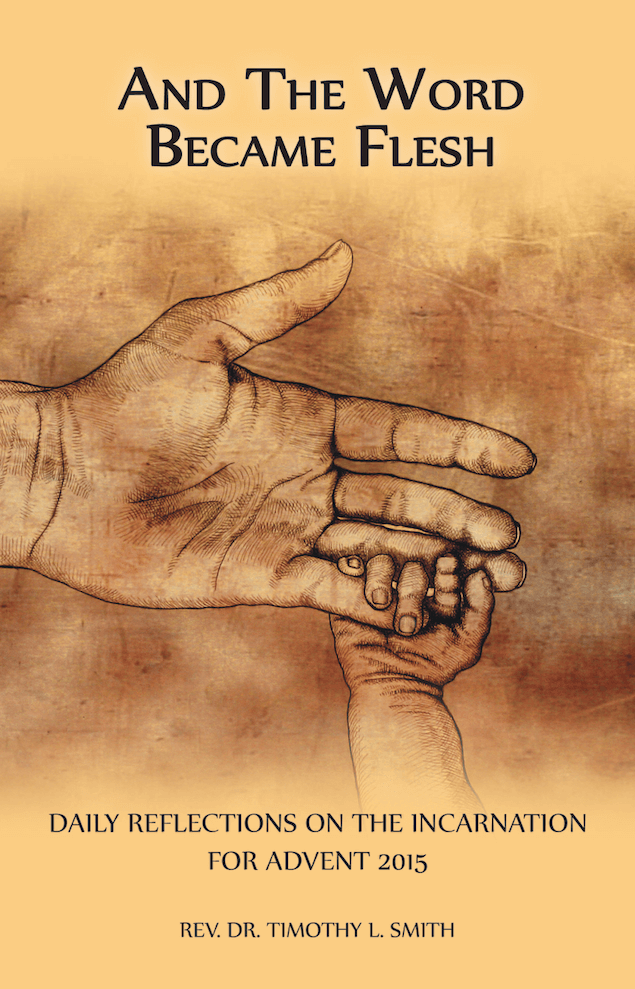The Eighteenth Day of Advent
For in him the whole fullness of deity dwells bodily, and you have come to fullness in him…
Colossians 2:9-10
Historians credit Francis of Assisi with gifting the world with the first crèche or nativity scene. It happened in 1223 in the Italian village of Greccio where Francis wanted to help people better understand and engage the mystery of the Word become flesh. Francis remembered a visit he made to Bethlehem years earlier that inspired the idea of finding a cave near Greccio and setting up a feeding trough filled with hay. He brought an ox and ass to the cave and then invited villagers to come and contemplate as he preached “the Babe of Bethlehem”. On Christmas night people came carrying torches and candles and listened as Francis spoke of God suffering for us in the truly human Jesus. Francis is reported to have been so overwhelmed by emotion as he preached that he could not say “Jesus”.
Who would not be moved when considering and contemplating the humble nativity of God’s Son! Theologian Wayne Grudem exults in this wonder of God clothing Himself in our human flesh:
The fact that the infinite, omnipotent, eternal Son of God could become man and join to a human nature forever, so that infinite God became one person with finite man, will remain for eternity the most profound miracle and the most profound mystery in all the universe. (Wayne Grudem, Systematic Theology)
C. S. Lewis called the birth of Jesus “the Grand Miracle” as “Every other miracle prepares for this, or exhibits this, or results from this…It was the central event in the history of the Earth.” (C. S. Lewis, Miracles) There would be no crucifixion, resurrection, or ascension without the eternal Word becoming flesh.
How important it is for us this Christmas to stop and ponder the Babe of Bethlehem and let ourselves be overwhelmed! Look at the little Christ child and think of today’s Scripture telling us that “in him the whole fullness of deity dwells bodily”. The Son of God did not give up His deity in taking human flesh; the little Babe of Bethlehem is fully God and fully human. Our text tells us that we can know that the “fullness of deity” is in Him and, therefore, we come to “fullness in him”.
False teachers in the apostles’ day, and in ours, preach “fullness” apart from Jesus, a fullness in esoteric teachings and special secret knowledge. But the Gospel is Christ plus nothing! We have fullness of life only in Him.
Often in our churches we speak of the “vicarious death” of Christ, about how He died for us in our place. We know that His death is our death, and His rising our rising. Yet Scripture also speaks about the “vicarious life” of Jesus, about how He lives His life for us in our place.
We can look at a cross and think how Jesus died for us. We can also look at a nativity scene and think how Jesus lives for us. From His manger bed to His grave Jesus acts for us, in our place, as God’s faithful representative for the whole human race. His vicarious life is His faithful, all-sufficient obedience to the saving love of the Father. It is through the “fullness” of Jesus that we come to “fullness” in Him.
It is of little surprise, then, to learn that Francis was overwhelmed by wonder as he considered the manger scene and Jesus’ humble birth. Let us also stop to consider and be overwhelmed that the “fullness of deity” dwells bodily in Christ!
PONDERINGS
- We talk about Jesus “dying” for us; what would Jesus “living” for us mean for you today?
- How do you understand the apostle’s phrase: “you have come to fullness in him”?
EMBODIED PRAYER: LYING DOWN
We spend a lot of time lying down, which makes this posture of prayer a favorite of many. I do some of my best praying lying down between two and three in the morning. Like their contemporaries, Jesus and His disciples ate Passover lying down, symbolic of being free and no longer slaves in Egypt. Lying down embodies rest and peace, our lives secure in God. David wrote in the Psalms: “I will both lie down and sleep in peace: for you alone, O LORD, make me lie down in safety“ (Psalm 4:8). David liked to think of God while lying down and talking with Him: “My soul is satisfied as with a rich feast, and my mouth praises you with joyful lips when I think of you on my bed, and meditate on you in the watches of the night” (Psalm 63:5-6).
Lying down is symbolic of knowing ourselves cared for by God: “He makes me lie down in green pastures” (Psalm 23:2). When we are fretful and anxious, God wants us to lie down and experience our rest and safety in Him.
Today, and every day (and night) of the Second Week of Advent pray the Lord’s Prayer while lying down. As you pray let yourself go into God’s strong hands.




